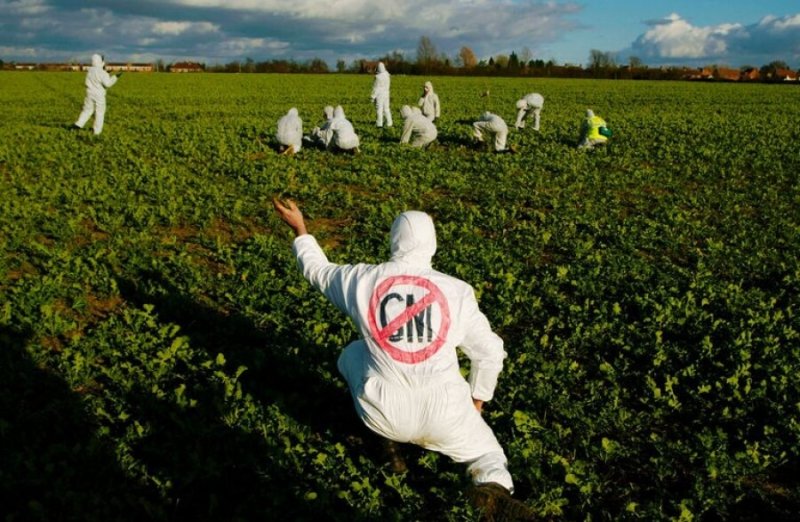There are legitimate grievances to be made about modern industrial agriculture, but the use of modern biotechnology for the development of new crop varieties is not one of them. The marketing push for non-GMO foods is just that, a marketing push. The push is fortified through advertisements rooted in pseudoscience, anti-intellectualism and the romanticization of premodern agriculture.
…
For instance, a recent advertisement for Garden of Life brand probiotic supplements boasts that the pills contain no “bioengineered whatever-they-call-it,” while showing a scientist enrobed in a full-body protective suit and respirator holding a sinister-looking test tube containing a sprig of parsley. The corporate website goes so far as to include the bogus remark that “In layman’s terms, GMO is a nice way of describing a plant that comes from a seed that has been injected with bacteria or pesticides to help it stay alive when the land it grows in is doused with chemicals.”
Genetic modification, in all its forms, is the key to creating new plant varieties that require fewer damaging inputs including fertilizer, pesticides and herbicides, while also providing for the ever-expanding global population… Progress comes through a deference to precaution coupled with an openness to the possibilities of science. Deliberate ignorance concerning genetic modification technology, however well-intentioned, is ultimately misguided.































